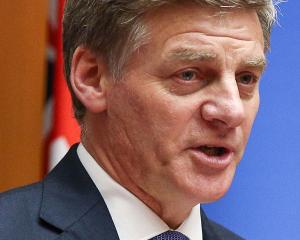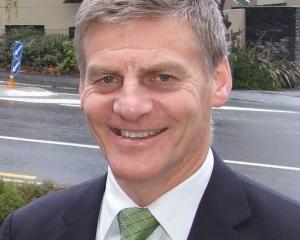Here is a blunt message for a couple of old-school Aro Valley-style socialists: Get off our backs. Stop behaving like a pair of tut-tutting old dowagers gossiping in the salons.
In short, stop making blinkered, cheap-shot accusations of the kind you made this week - that the media who went with John Key to Vladivostok and Tokyo concentrated on trivia, interviewed their laptops and parroted Department of the Prime Minister and Cabinet press releases.
Press gallery journalists generally treat the bile and invective directed at them by portions of the blog-a-tariat as an unwelcome and unfortunate byproduct of an otherwise exciting and intellectually challenging job.
You just have to put up with it.
To bother to reply is to invite another shower of criticism - plus the old chestnut that if you cannot stand the heat then get out of the kitchen.
Polemic and argument over ideas is one thing; ignorance is something else, however.
Do the likes of former Listener columnist and Greens propagandist Gordon Campbell and former Alliance staffer and now Otago University politics lecturer Bryce Edwards have the faintest idea of the difficulties, obstacles and logistics of reporting an overseas trip by a prime minister, especially one which incorporates a major international forum such as Apec?
Does it occur to them to actually pick up the phone and try to talk to those journalists about what is happening and why things are being reported in a certain way?
Of course not. That would risk the facts getting in the way of, well ... interviewing their laptops and having yet another ritual poke at the parliamentary press gallery.
To read their drivel while stuck in a Tokyo traffic jam with your deadline approaching faster than a Japanese bullet-train makes your heart sink.
For starters - and to be pedantic about it - the Department of Prime Minister and Cabinet does not issue press statements with a political hue.
That is the job of the Prime Minister's office - a quite separate institution.
But never mind. The rules that apply to journalists in terms of accuracy do not apply to Campbell and his echo chamber Dr Edwards - who is not be confused with Dr Brian Edwards, another blogger, but a far more original one when it comes to ideas and analysis.
Bloggers can blog when they like at what length they wish. Admittedly, they are normally not being paid for the privilege. Journalists are. But on a trip like last week's one, the hourly rate slumps drastically by virtue of the hours worked.
Few media representatives travelling with John Key would have got more than four or five hours' sleep each night - probably less - because of the Prime Minister's schedule, which ran from 6am (earlier if a flight was involved) until well into the evening.
Days were spent clambering on and off buses in 35degC heat and 100% humidity.
Time has to be found within that schedule to write news stories and other articles, but not just for the following day's newspaper. News organisations' websites have to be fed, especially if there is "breaking" news.
Deadlines in Asia are punishing, as countries such as Japan are three hours behind New Zealand, meaning deadlines are effectively even tighter.
Then there is the no small matter of filing stories back home.
Equipment breaks down, mobile phones that are supposed to be in harmony with Japan's system turn out not to be.
Edwards' and Campbell's claim that there was precious little analysis of key Apec issues, such as the Trans-Pacific Partnership (TPP), is simply not borne out.
There were copious amounts written about the TPP beforehand, including a major feature in the Herald a few months ago.
Everybody knew and said the TPP would not be a big deal because Barack Obama, the figure crucial to building political momentum to achieve a final deal, was absent.
TPP is certainly important within the wider context of Apec. But it was not a major feature of this year's meeting.
Or is it Campbell's and Edwards' agenda or strategy to make the media feel guilty about not writing more anti-TPP stories?
Given that National and Labour - the two largest parties - both support the TPP, news agencies and organisations have to be careful not to give one side too much coverage, and instead treat stories on merit.
With negotiating details kept close to the chest, it is anyway difficult to assess how the talks are going.
Adding to journalists' problems is that Apec meetings are closed.
Discovering what really happens requires talking to more than one delegation because every delegation has motives for saying what it is saying to its media contingent. To Campbell's credit, he does do his own digging. He is also a regular attendee at the Prime Minister's weekly press conference. His blog is one of the more valuable. But he does have a blind spot with regards to the press gallery.
The rapidly growing influence of Edwards' blog was initially down to its being an exhaustive wrap-up of all of the day's political news. It is now starting to develop a much more political dynamic that is unlikely to please National.
Edwards' blog is the extreme example of the fact that most blog sites rely on the mainstream media for their information and then use that information to criticise the media for not stressing something enough or deliberately hiding it.
Unlike the mainstream media, the blogs are not subject to accuracy or taste, and sometimes even the law.
It is the ultimate parasitical relationship. And it will not change until the media start charging for use of their material.
• John Armstrong is The New Zealand Herald political correspondent.



